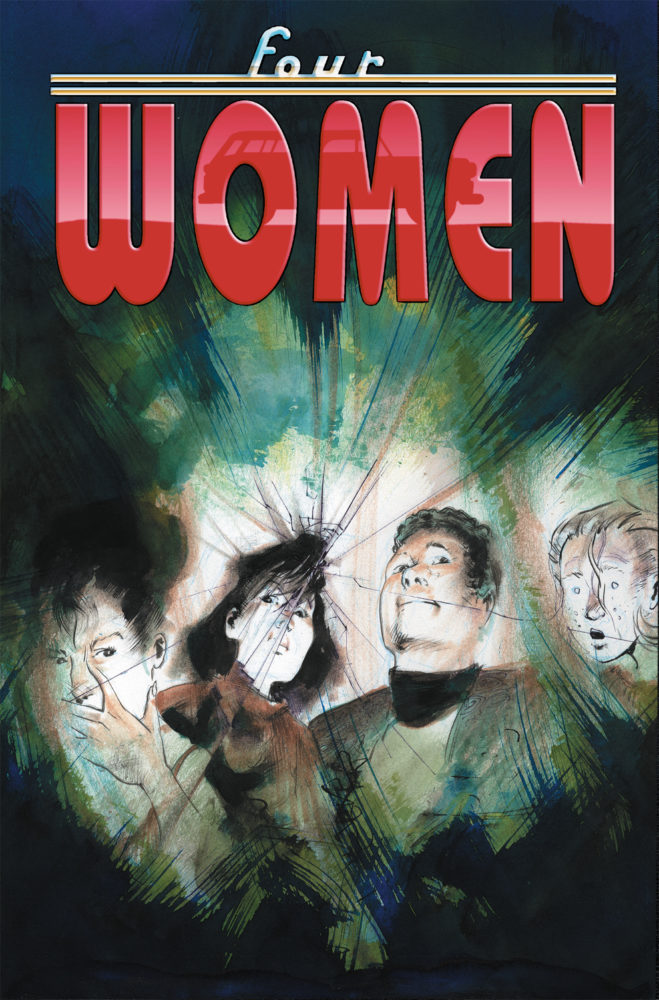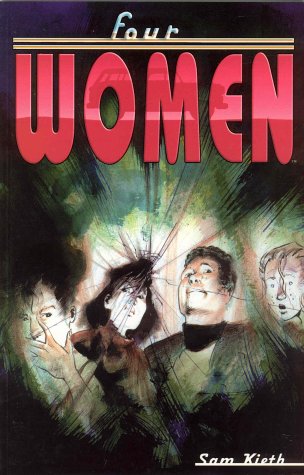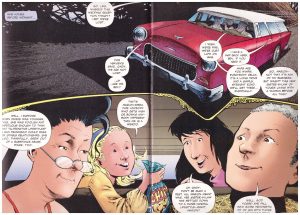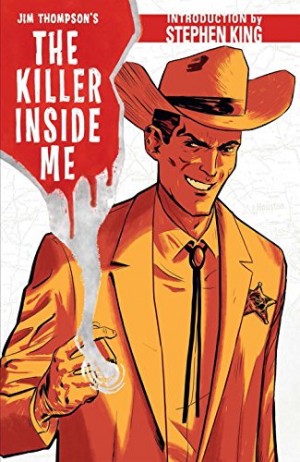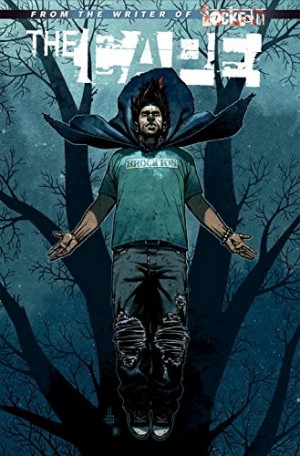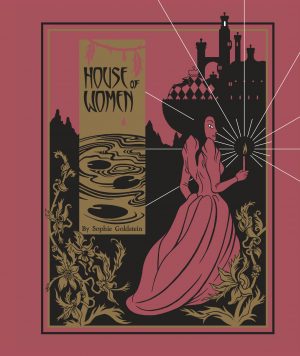Review by Frank Plowright
A 2018 reissue of Four Women is very welcome. It’s a character based horror story, but one defined by experimentation, both in the telling and via the art, and one that maintains a consistent sense of unease.
A clever cover by Sam Kieth introduces puzzlement at what the four women are looking at, and their reactions are deliberately open to interpretation. The opening pages, however ensure no doubt that something horrible has happened before reeling back and introducing the cast. The four women are friends, but of different backgrounds and ages, driving to a wedding reception. Bev is an analytical lawyer, Marion is a Christian mother of four in her forties and recently separated from her husband, Cindy is 19 and plays competitive ice hockey, and Donna is recently divorced and also a mother. She provides the narration, discussing events in hindsight in response to prompting questions from someone else.
There is an incident. It’s terrible, and life-changing, occurring when the car breaks down late at night. Kieth tells the story very cleverly, with a terrified Donna dredging up her scattered and sometimes contradictory memories, jumping back and forward, sometimes coherent, at other times not. The bantering opening chapter in which the women discuss what they’d do during an end of the world scenario sets the tone, defining their personalities and their views. It also establishes tension, as we know from the start that something goes very wrong. Kieth toys with the conventions of comics, not least that of the narrator, and fiction generally. Central to Four Women is the all too human trait of knowing we’ve done something wrong, but instead of facing up to the mistake and accepting the consequences, we drift into self-pitying justification.
Kieth’s art is wonderful, his customary exaggerated style, but delivered in large images, with rarely more than four panels to a page, and frequently fewer. These images have a fragmented quality to match the text, and are often in extreme close-up, reproducing the effect of a spotlight shining in the face to match what’s an investigation of truth. The four women are deliberately designed to look very different, and much about their eventual character can be determined from their appearance. In order for the story to work, it’s set in the days before cellphones, but the bonus is Kieth’s illustrations of a great 1970s station wagon, integral to events. It looks rather like the Shoveller’s car from Mystery Men.
A single narrative weakness is important. For the story to work as constructed, the four women’s personalities have to be very different, but it’s never defined why they’re friends, which nags. Otherwise, how carefully the personalities have been built is exemplified by the ending, which might not be to all tastes, but is consistent with the way the cast have been presented. It’s the weakest aspect of Four Women, and the story would have been stronger for leaving matters hanging rather than supplying a definitive resolution. As it’s more in the form of a five page epilogue, it doesn’t undermine the remainder. This is a powerful work, and it’s hoped that almost twenty years on from the serialised issues, a wider audience can be found.
